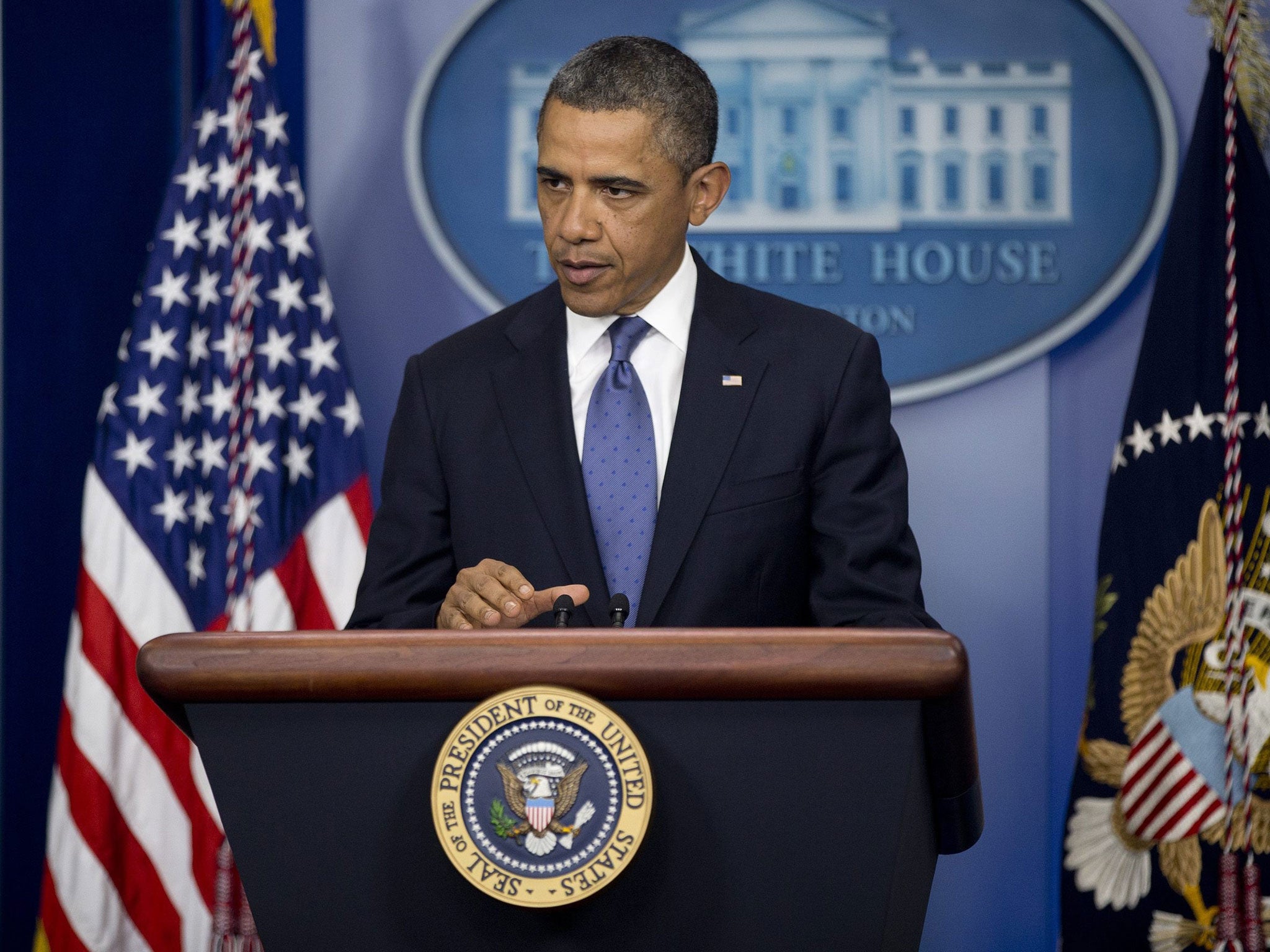Just one more day for US to seal 'fiscal cliff' deal
Rush to replace expired laws and stop economy tipping back into recession before markets open

Your support helps us to tell the story
From reproductive rights to climate change to Big Tech, The Independent is on the ground when the story is developing. Whether it's investigating the financials of Elon Musk's pro-Trump PAC or producing our latest documentary, 'The A Word', which shines a light on the American women fighting for reproductive rights, we know how important it is to parse out the facts from the messaging.
At such a critical moment in US history, we need reporters on the ground. Your donation allows us to keep sending journalists to speak to both sides of the story.
The Independent is trusted by Americans across the entire political spectrum. And unlike many other quality news outlets, we choose not to lock Americans out of our reporting and analysis with paywalls. We believe quality journalism should be available to everyone, paid for by those who can afford it.
Your support makes all the difference.Frantic negotiations to find a way to protect the American economy from the worst effects of the looming "fiscal cliff" were under way in Washington DC last night, with Democratic and Republican leaders rushing to cobble together proposals that could be put before lawmakers as early as today.
President Barack Obama, who reiterated the case for a bipartisan deal that protects middle-class Americans from imminent tax hikes and extends unemployment benefits for the more than two million people who would otherwise lose federal aid, continued to press the argument in his weekly address to the country yesterday. Echoing his remarks following an Oval Office meeting with congressional leaders on Friday, Mr Obama said: "We cannot let Washington politics get in the way of America's progress. We've got to do what it takes to protect the middle class, grow this economy and move our country forward."
Without new laws, expiring legislation will automatically trigger steep tax hikes for almost all Americans, while at the same time robbing government departments of billions in spending. The unemployed who have been depending on federal help for more than six months will be stripped of any future cheques. Taken together, the changes are worth more than half a trillion dollars – and would almost certainly tip the weak American economy back into recession.
Although lawmakers could in theory delay an agreement until early or mid-January, and then return to repeal the most damaging measures, the fragile economy needs a deal before the end of 2012. Risks are also mounting of a stock market panic.
The ball is in the court of the Senate, with Harry Reid, the Democratic leader of the upper chamber of Congress, working with Mitch McConnell, who leads the Republican minority, to forge a pact that could find favour in Congress. Their efforts come after John Boehner, the Speaker of the Republican-controlled House of Representatives, failed to strike an accord with the White House.
Mr Boehner has resolutely opposed the President's push for higher taxes on the wealthy. Mr Obama wants taxes to be protected for those earning less than $250,000 a year, implying higher rates for those whose earnings surpass that level.The President did, however, offer to raise that threshold to $400,000 before negotiations with Mr Boehner broke down.
Mr Reid is due to hold a meeting with his Democratic colleagues in the Senate this afternoon, where he hopes to discuss a plan agreed with Mr McConnell. The Republican has promised to do the same with his party colleagues. Later in the day, the House will return to consider the plan, and potentially vote on it before stock markets open tomorrow.
Although Mr Obama has given Mr Reid and Mr McConnell time to formulate an agreement within Congress, he has also drawn a line in the sand: if they fail to agree on a deal that can pass through the Senate and also find passage in the House, he has called for a vote on his basic proposals that would, for the time being, protect middle-class incomes and long-term unemployment benefits while a more comprehensive deal is worked out.
Join our commenting forum
Join thought-provoking conversations, follow other Independent readers and see their replies
Comments